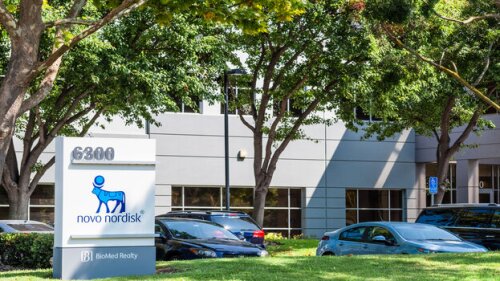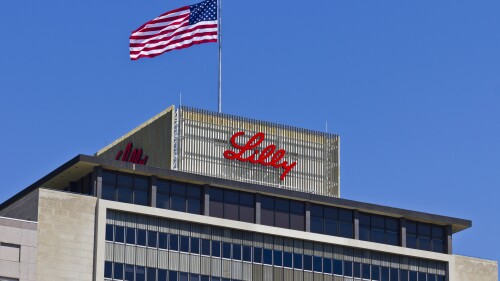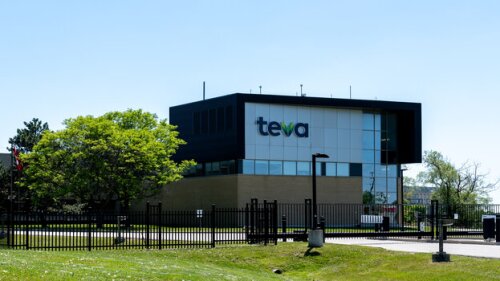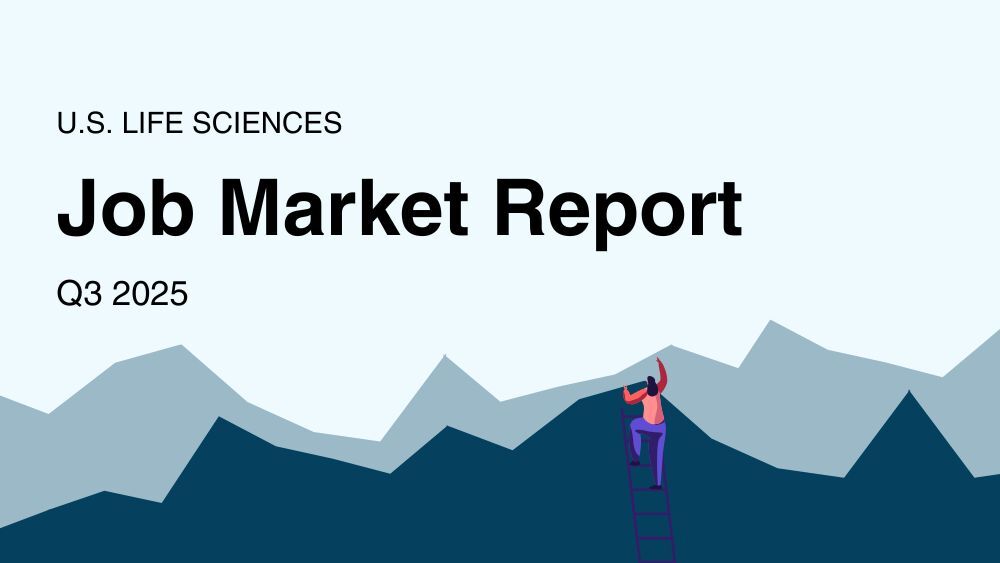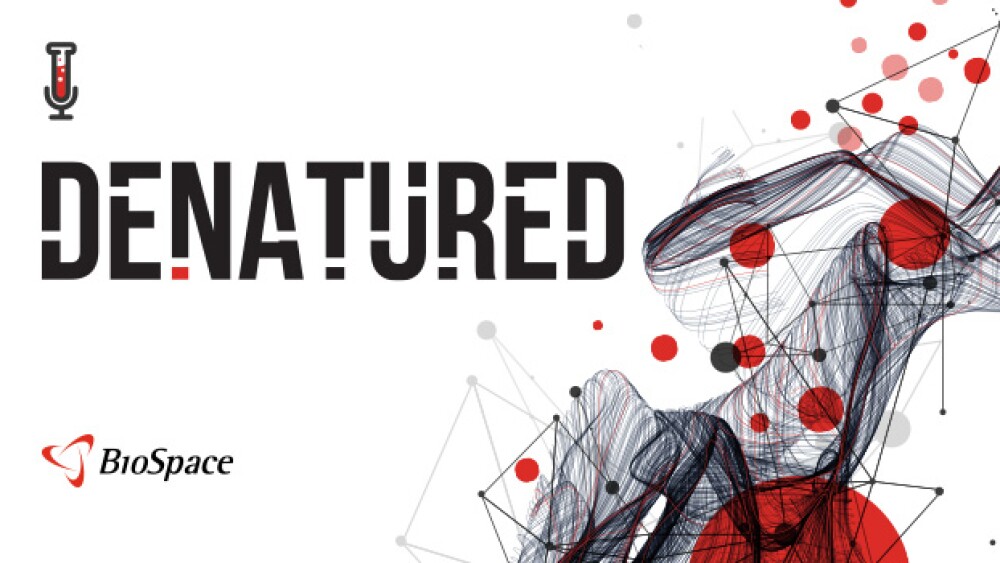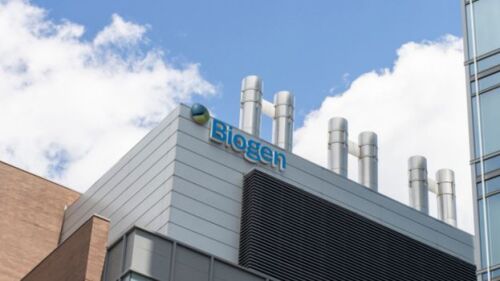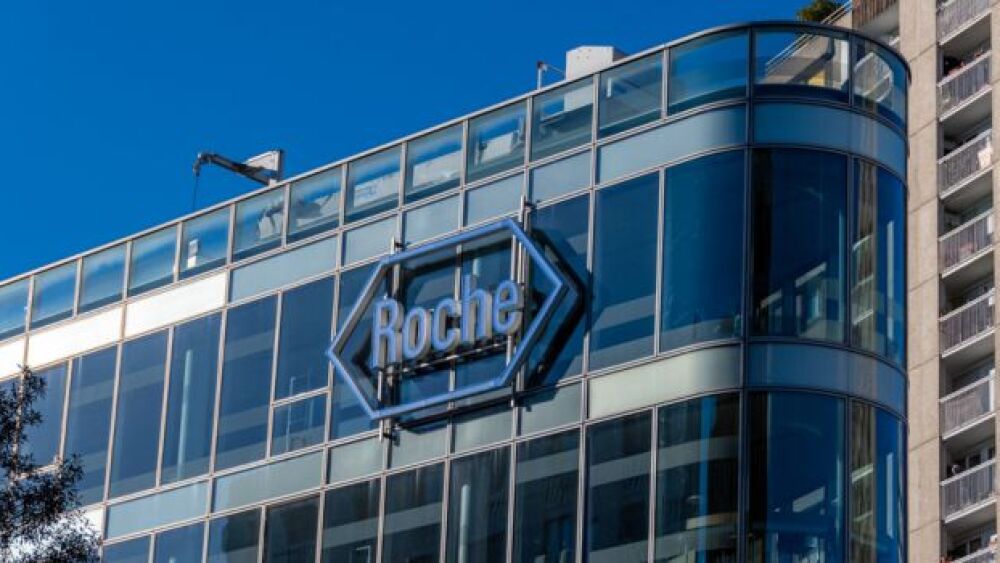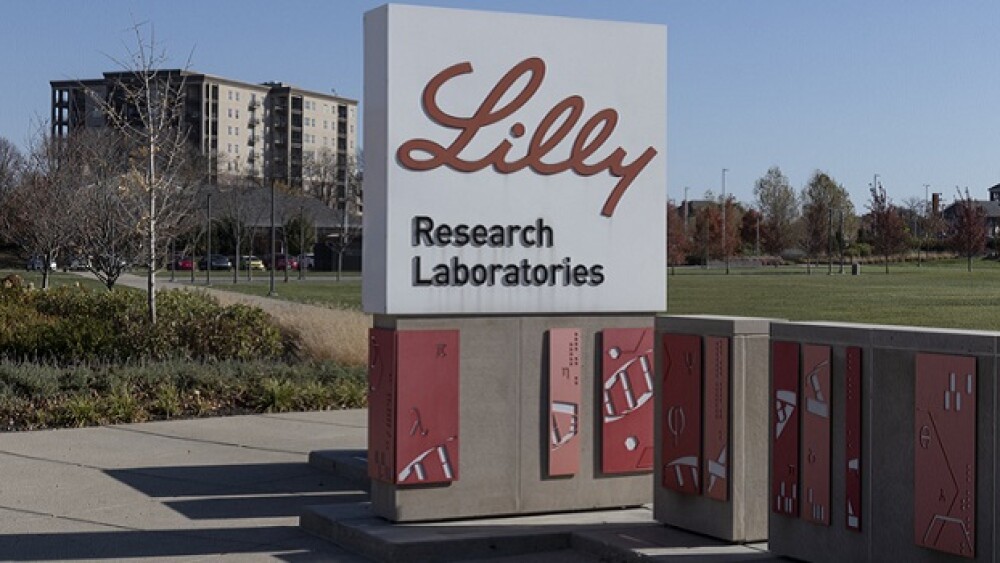The OMass partnership will boost Roche’s strategy in inflammatory bowel diseases, currently led by afimkibart, an anti-TL1A therapy the pharma obtained from its $7.1 billion acquisition of Telavant in 2023.
Novo Nordisk’s Wegovy has been on a winning streak as of late, with a metabolic dysfunction-associated steatohepatitis approval last month and prime position in the oral obesity race.
While the approval of Leqembi Iqlik bodes well for Biogen and Eisai’s planned application for a subcutaneous induction regimen next year, its financial impact remains “uncertain,” as potentially higher revenues from the injection could be offset by steeper costs of production, according to Jefferies.
While Eli Lilly’s orforglipron is full speed ahead for a regulatory filing this year, the pharma is also pushing forward with one more Phase II study of naperiglipron, which uses the same scaffold as Pfizer’s failed obesity drugs danuglipron and lotiglipron.
In December 2024, Teva also secured FDA approval for the other liraglutide brand Victoza, indicated for type 2 diabetes.
Health Secretary Robert F. Kennedy Jr. will testify before the Senate Finance Committee on Sept. 4, following the ouster of CDC Director Susan Monarez and tapping of HHS Deputy Secretary Jim O’Neill as her interim replacement.
FEATURED STORIES
As the year gets underway, analysts and biotech executives highlight cell therapy’s pivot from oncology to autoimmune diseases, a continued appetite for next-generation obesity drugs and an increased focus on neuromuscular, kidney and cardiovascular diseases.
Even before the FDA’s recent approval of Dato-DXd in breast cancer, analysts predicted sales of the antibody-drug conjugate could hit $5.9 billion in 2030. However, the asset faced a series of setbacks in 2024.
Traditionally carrying a dire prognosis, the treatment paradigm for multiple myeloma is changing, with CAR T therapies, bispecifics and more contributing to multifaceted regimens unique to each patient’s needs.
Biopharma executives make their predictions for the year ahead, from a bold forecast for the return of the megadeal to a plea for the slow, healthy recovery of the industry at large.
As I ran from interview to interview across San Francisco, I was consistently warmed by the stories I was told by biotech and pharma executives—and the general comradery in the air throughout the chaotic event.
With incoming president Donald Trump threatening a trade war with China, experts told BioSpace that the new administration will likely understand why medicines should be treated differently.
LATEST PODCASTS
This episode focuses on a healthy discussion regarding the IRA, particularly the unintended consequences to small molecule development within the industry and for patients.
Heather, Greg and Tyler discuss a busy news week including Wegovy’s label expansion, biosimilars, surprise donanemab delays for Eli Lilly and speculate on election impact.
These days you can hardly move without figuratively bumping into antibody-drug conjugates (ADCs). This week we discuss Pfizer’s strategic priorities for oncology - focused on ADCs and less on small molecules - and how the market is being influenced by the IRA.
Job Trends
Medison Pharma and Alnylam Pharmaceuticals, Inc. announced a further expansion of their existing partnership in Central & Eastern Europe and Israel, to also include selected markets in LATAM and APAC and additional international markets.
Subscribe to Genepool
Subscribe to BioSpace’s flagship publication including top headlines, special editions and life sciences’ most important breaking news
SPECIAL EDITIONS
In this deep dive, BioSpace investigates China’s rise as a biotech powerhouse.
In this deep dive, BioSpace explores the next big thing in obesity.
BioSpace did a deep dive into biopharma female executives who navigated difficult markets to lead their companies to high-value exits.
DEALS
-
As we near the end of second quarter of 2024, the initial public offerings among biotechs have slowed, but the market is still going strong.
-
Orna Therapeutics announced Thursday it is acquiring ReNAgade Therapeutics, which launched in May 2023 with $300 million in Series A financing and is on BioSpace’s NextGen Class of 2024 startups to watch this year.
-
Days after backing out of two Ionis-partnered neuro programs, Biogen has inked a potential $1.8 billion buy of Human Immunology Biosciences and boosting its late-stage immunology pipeline.
-
Neuroscience-focused Rapport Therapeutics and radiopharma developer Telix Pharma announced their respective plans Friday for initial public offerings on the Nasdaq for undisclosed dollar amounts.
-
Johnson & Johnson announced Thursday it is paying $850 million in cash, plus a potential milestone payment, for privately held biotech Proteologix and its atopic dermatitis-focused bispecific antibody candidates.
WEIGHT LOSS
-
When doses were increased rapidly in a Phase I study, patients on Roche’s investigational oral GLP-1 receptor agonist experienced nausea, vomiting, constipation, diarrhea, as well as abdominal distension.
-
On the heels of Terns’ positive Phase I results that analysts compared with Lilly’s and Pfizer’s weight loss pills in development, Novo Nordisk showcased more details about its own oral candidate.
-
A recent study estimated that Wegovy’s label expansion beyond obesity could push Medicare spending to $145 billion annually, but analysts remain dubious of the estimate.
-
A study published Tuesday in The New England Journal of Medicine showed that children between the ages of six and 12 who took liraglutide for just over a year experienced a significant reduction in body mass index compared to placebo.
-
BioMarin’s new business strategy leaves investors with questions; Lykos CEO steps down; Terns releases compelling data on oral weight loss candidate; and more.
POLICY
-
Marty Makary, likely FDA commissioner under President Trump, appeared before Congress this week as the agency he’s set to lead continues to be rocked by sweeping changes and about-faces.
-
Days after suffering a rejection in Australia, the Alzheimer’s drug hit another roadblock in the U.K., which found the drug not cost-effective.
-
Analysts at Jefferies see Makary as a positive for the rare disease space, given his support for accelerated approvals and openness to “customizing regulatory pathways for rare diseases.”
-
The Senate hearing for FDA Commissioner nominee Marty Makary comes after President Trump’s NIH pick, Jay Bhattacharya, was grilled by the legislative body on Wednesday.
-
The last few years have been tough for the insulin market, with recent policies and high-level pressure forcing companies to lower drug prices.
While you’re starting your job search and before you go into any interviews, think about how you want to talk about your job loss.
Reasons for investing in leadership development program in the biotech industry are divided into need and opportunity. Read the proper opportunity divisions here.
No matter in which industry you are, clear communication is very important. Follow these tips for clear communications to be prepared to fit in the work environment.
Virtual meetings might have enhanced the ways we connect with each other but it can be really hard to communicate with someone who doesn’t know the basic Zoom meeting etiquette.
Learn these important leadership qualities. The first five on the list are emotional and attitudinal. The other five concern intellectual abilities and learned skills.
Here are four questions to think about when considering a career change during the pandemic.
HOTBEDS
IN CASE YOU MISSED IT
The U.S. government remains shut down, with the FDA closed for new drug applications until further notice; cell and gene therapy leaders gather for the annual meeting in Phoenix with the field in a state of flux; Pfizer and Amgen will make drugs available at a discount as President Donald Trump’s tariffs still loom; and new regulatory documents show how Pfizer beat out the competition for Metsera.
REPORTS
In this Employment Outlook report, BioSpace explores current workforce sentiment, job activity trends and the prospective job and hiring outlook for 2025, particularly as it compares to the previous year.
BioSpace’s third report on diversity, equity, inclusion and belonging in life sciences examines dramatic shifts in attitude around diversity initiatives.
CANCER
-
According to Jake Van Naarden, president of Lilly Oncology, the excess deaths could be due to the high rate of crossover in BRUIN CLL-321.
-
Analysts called the data “very competitive” but raised questions about safety. Merck gained ownership of the ADC when it acquired VelosBio in November 2020 for $2.75 billion.
-
The FDA’s year-end rush includes nine target action dates, mostly for rare disease and cancer therapies.
-
Protara is advancing a cell therapy that triggers both adaptive and innate antitumor immune responses, while CG Oncology’s approach makes use of an oncolytic immunotherapy that preferentially targets cancer cells and proliferates inside them, destroying them from the inside.
-
One year after a potential $1.7 billion deal with Hansoh Pharma, GSK goes back to China to forge another alliance with DualityBio for another deal that could be worth up to $1 billion as it continues to build up its ADC portfolio.
NEUROSCIENCE
-
Oditrasertib, which blocks the inflammatory RIPK1 protein, earlier this year also failed a Phase II trial in amyotrophic lateral sclerosis, forcing the company to discontinue its development a few months later.
-
Sage has decided to discontinue the development of dalzanemdor in Alzheimer’s disease. A study of the candidate in Huntington’s is ongoing, with early data expected later this year.
-
With Monday’s data from SAPPHIRE, Scholar Rock is building toward regulatory submissions for apitegromab in spinal muscular atrophy in the first quarter of 2025.
-
Bristol Myers Squibb wins approval for the first novel schizophrenia drug in decades; Pfizer pulls Oxbryta from the market; new IVF and abortion laws could derail women’s health research; Roche touts CDK inhibitor deal and obesity pipeline and BioSpace heads to Meeting on the Mesa.
-
From Eli Lilly to Karuna Therapeutics to current owner Bristol Myers Squibb, the newly approved schizophrenia drug had quite the journey to market. Former Karuna and Lilly executives discuss the “accidental” and “serendipitous” discovery.
CELL AND GENE THERAPY
-
Fatalities are an unfortunate reality of clinical trials. How can companies best protect themselves?
-
After more than a decade devoid of therapeutic advancements, a first-in-class T cell receptor therapy could be on the immediate horizon for synovial sarcoma patients.
-
The company’s candidate, giroctocogene fitelparvovec, met its primary and key secondary objectives of superiority compared to the standard treatment of regular Factor VIII infusions.
-
The Department of Health and Human Services’ Office of the Inspector General found that bluebird bio’s fertility support program for its gene therapies could potentially violate federal anti-kickback statutes.
-
After a long and challenging journey for its stem cell therapy NurOwn, BrainStorm Cell Therapeutics has aligned with the FDA on the parameters of a Phase IIIb ALS trial that is expected to begin by the end of 2024.





